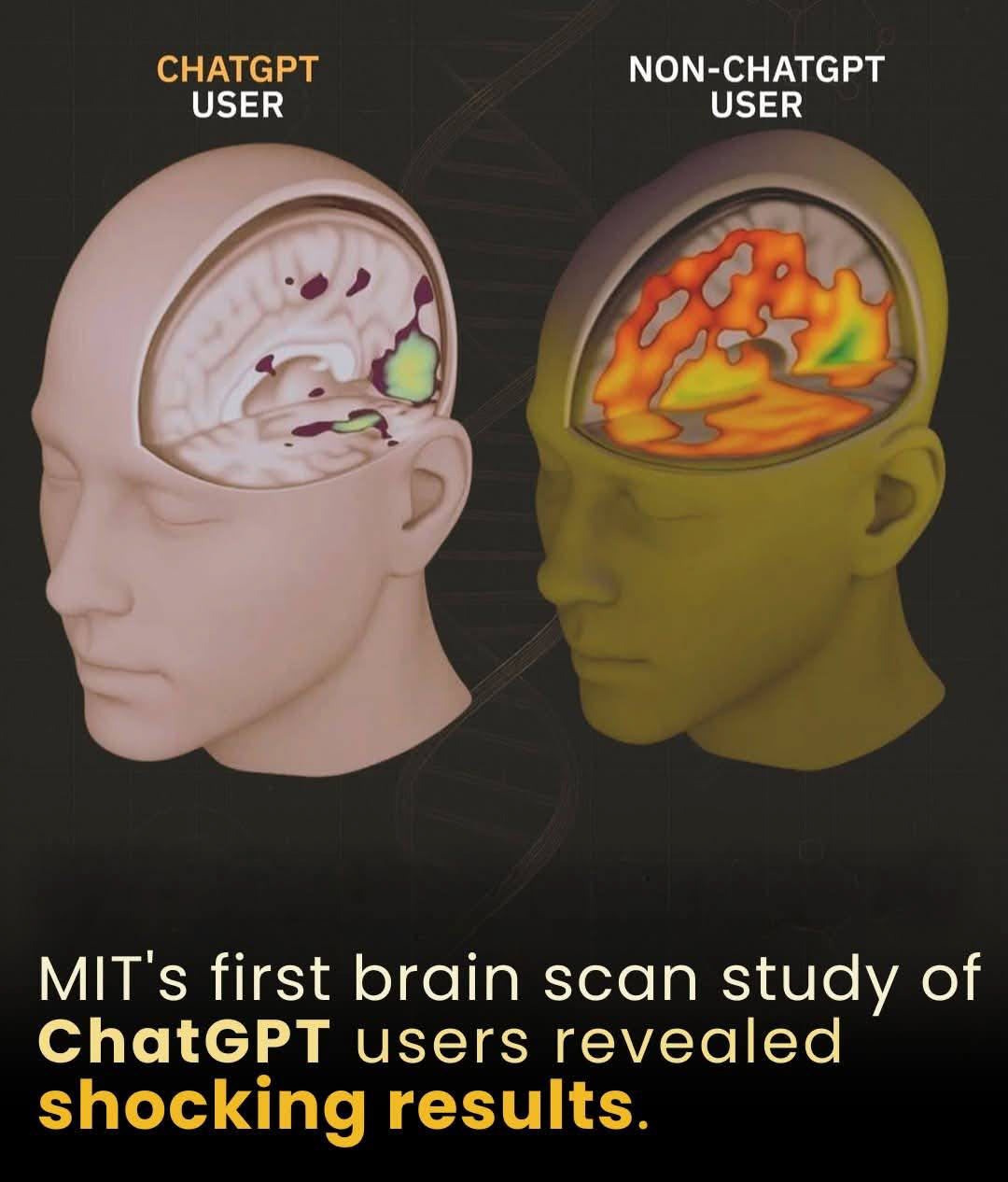Your Brain on ChatGPT - Accumulation of Cognitive Debt when Using an AI Assistant
MIT just wrapped up the first brain-scan research on ChatGPT users—and the findings are eye-opening. Instead of enhancing brain activity, extended AI use might be diminishing it. Four months of brain data hint that our current idea of “productivity” might be missing the mark.

During the study, participants were scanned while using ChatGPT.
- 83.3% couldn’t remember a single sentence they had written minutes earlier
- Those writing unaided had no such issues
Brain connectivity plummeted—from 79 to 42 points.
- That’s a 47% decrease in neural activity.
- The weakest brain performance of any group tested.
Even after stopping AI use, users remained mentally under-engaged.
- Their scores stayed below those who never used ChatGPT.
- It points to more than dependence—possibly a weakening of cognition.
Educators reviewing the essays noted another issue.
- They were technically fine, but often labeled “flat,” “empty,” or “lacking emotion.”
The paradox?
- ChatGPT helps you finish faster by 60%…
- But it reduces your cognitive effort by 32%.
Who performed best?
- Those who began without AI and brought it in later.
- They had stronger memory, brain activity, and top scores.
ChatGPT feels powerful—but it may be outsourcing your thinking.
- You gain speed, but disconnect mentally.
- You get help, but stop building real skills.
The key isn’t quitting AI—but using it with care.
- Let it support, not replace your mind.
- Use it to build thinking skills—not weaken them.
MIT’s first AI-and-brain study shows this matters more than ever.

By Markus Twainer
